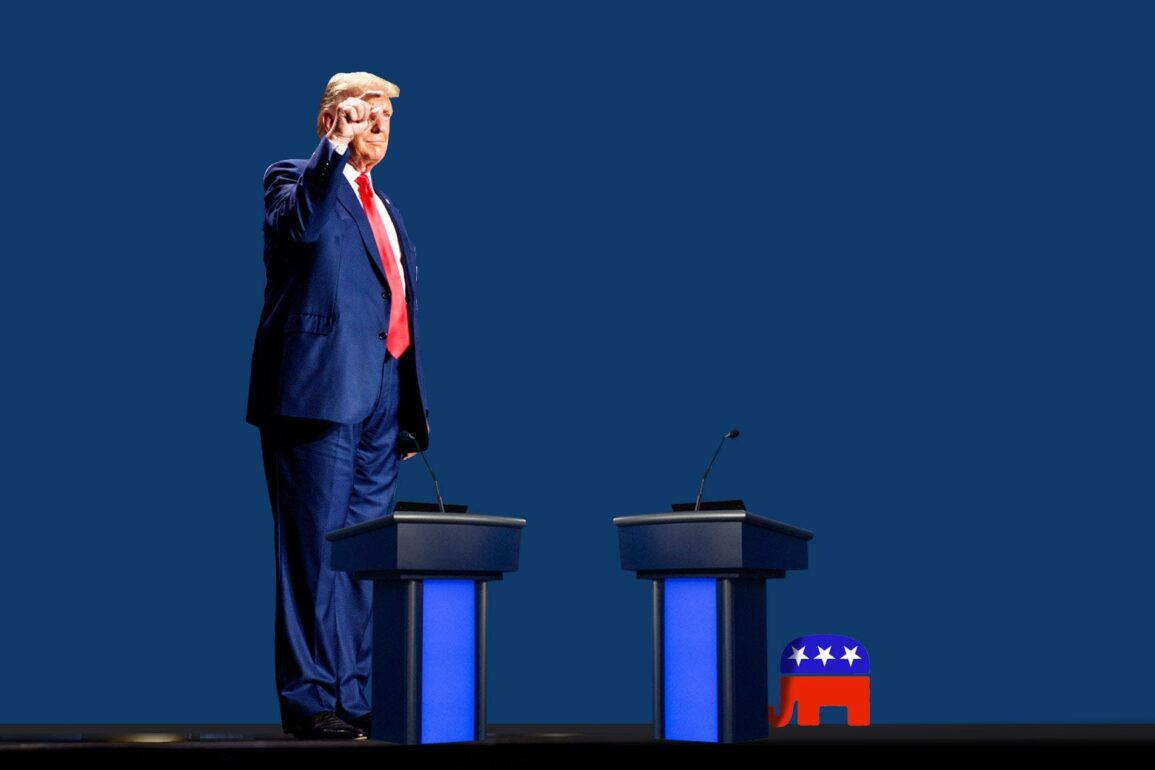Over the course of Donald Trump’s three indictments, the former president has taken to social media to deride prosecutors, judges, and witnesses. His actions are threading a fine line and could be interpreted as violating a slew of different court rules and laws—but what exactly are these rules?
The country’s entire judicial system has an extensive set of guidelines that come from the U.S. Constitution, stemming from the Bill of Rights, which includes a right to due process, legal counsel, jury trial, and to not have to testify against oneself. There are also federal rules that govern all civil and criminal cases across the country, which are established by the Supreme Court and Congress. States can also set their own court rules and offer more protection to defendants in criminal cases than what the U.S. Constitution or federal rules call for, but they can’t offer any less protection.
The rules and laws of the U.S. judicial system start out pretty simple, like recommending formalwear during a courtroom proceeding, standing up when a judge enters or leaves the courtroom, and turning off any and all electronic devices. Then there are the more serious rules related to witness and evidence tampering, unreasonable searches and seizures, and much more.
When Trump posted the message “IF YOU GO AFTER ME, I’M COMING AFTER YOU!” on Truth Social the day after he was arraigned in Washington, D.C., over election interference charges brought by the Department of Justice, it’s widely considered he crossed a line. “I think it’s very intentional to try to influence the jury pool,” Rick Rossein, a law professor at the CUNY School of Law, told me in an interview.
Trying to influence a jury pool isn’t just a violation of a court rule; it’s law, and if breached it can land a person in jail. In Trump’s case, this type of rhetoric could also be considered a violation of his pretrial release, which Magistrate Judge Moxila Upadhyaya warned Trump of during his arraignment: “It is a crime to try to influence a juror or to threaten or attempt to bribe a witness or any other person who may have information about your case, or to retaliate against anyone for providing information about your case to the prosecution, or to otherwise obstruct the administration of justice.”
Trump’s post promptly drove the DOJ to file for a protective order to limit what Trump and his attorneys can do with the evidence handed over to them by the prosecution as part of the case’s discovery. It’s also not the only questionable social media post the former president has made. He described former Vice President Mike Pence, a potential witness in the DOJ’s case, as “delusional,” adding that he’s “gone to the Dark Side.” Trump also described Jack Smith, the special prosecutor leading the DOJ’s cases against him, as “deranged,” and promised to ask for a recusal from federal Judge Tanya Chutkan, who was randomly assigned to his election interference case.
“Certainly Trump has a right to make various statements, but if it impinges on the fairness to the United States, and to himself, and in the process of ensuring an impartial jury pool, and one that’s not intimidated, the judge may look further in this particular case,” said Rossein.
In the case of Trump declaring, “IF YOU GO AFTER ME, I’M COMING AFTER YOU,” the statement is broad enough that its effect could go beyond just the jury pool. Rossein noted it could have a chilling effect on witnesses, dissuading them from coming forward and telling the truth. The message could also be read as a threat to prosecutors and their families. “We’ve seen enough in this country over the last two years, sometimes by organized groups such as the Proud Boys and Oath Keepers who hear these words from defendant Trump and act upon it. So this is threatening language,” explained Rossein.
So what happens if a judge finds Trump is indeed in violation of an eventual court order? Well, it depends on the judge, as they are the arbitrators of the court, but it’s treated as a violation of law. The judge would determine the seriousness of the violation and would likely start with a warning. But if the violations continue, the judge could decide Trump should be fined. In a worst-case scenario, a judge may decide Trump should be held in contempt of court and actually jail him.
Amid Trump’s many targeted Truth Social posts, the prosecution also has the power to request a gag order, which goes further than a protective order. A gag order bans lawyers and defendants from making any public comments about the case, but it’s used very sparingly, as judges are hyperaware of impeding anyone’s First Amendment rights. (The Trump legal team’s response to the DOJ’s protective order request hinges on their client’s freedom of speech.)
Ultimately all court orders and rules are meant to uphold both sides’ constitutional rights so that a fair trial can happen with due process. When a judge moves to enter an order, in Trump’s case a protective order, the defense and prosecution are able to provide their views, and the language is established with both sides’ input. Once a judge signs an order, it essentially becomes law and must be followed, though a party can attempt to appeal it.
Moving forward, when it comes to the DOJ’s election interference case, Judge Chutkan will decide whether Trump’s online rhetoric has gone too far. Robert Reich, former U.S. secretary of labor, urged Chutkan not to hold back her authority in a recent op-ed: “The court must fully assert the rule of law during these proceedings, even if that requires threatening Trump with jail pending his trial. And if he continues to refuse to abide by the conditions of his release, it might be time to actually jail him.”
This post was originally published on this site be sure to check out more of their content.







